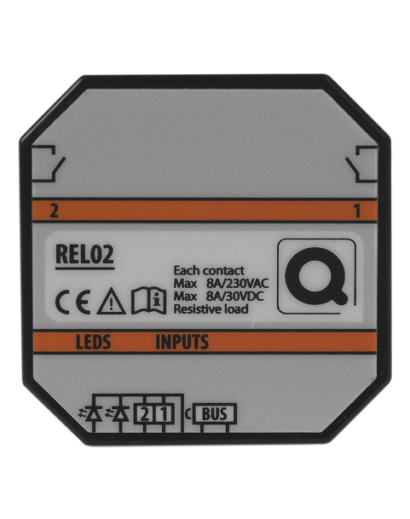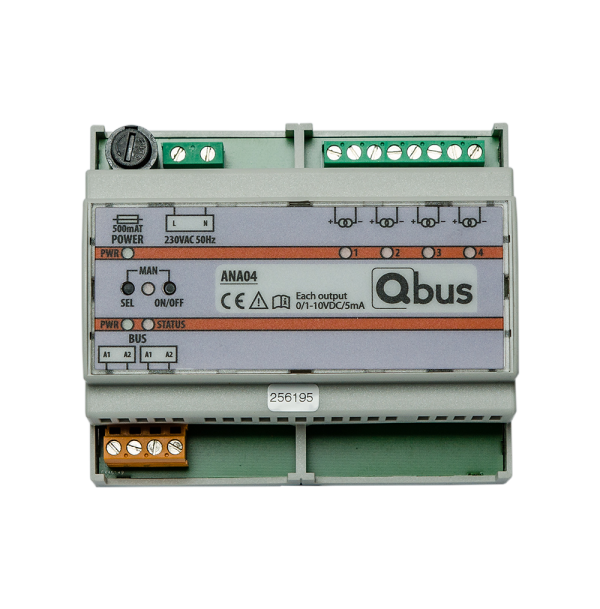
The range of Qbus dimmermodules goes from standard dimmers to dim halogene or incandescent lights over universal dimmers for any load to 0/1-10V dimmers to dim analogue circuits or energy savings lamps.
1 OUTPUT 0/1-10V ANALOG OUTPUT MODULE
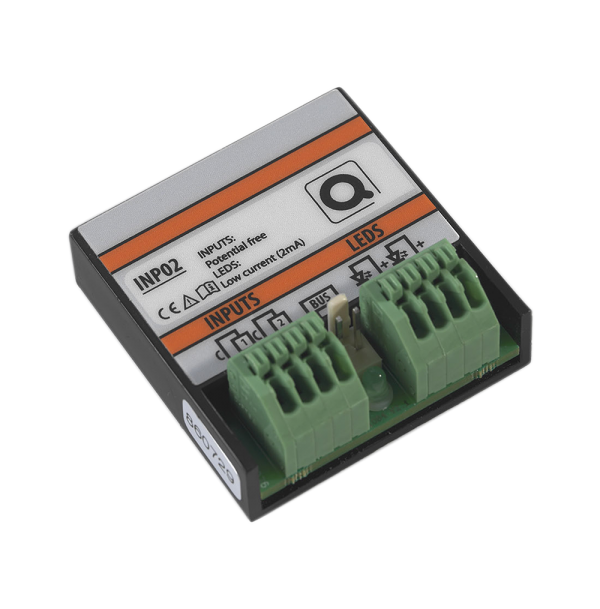
Input Modules exist in both DIN rail format to be mounted in the enclosure, as well as in a smaller format to be included in the in-wall mounting box of a switch. Via input modules, external contacts such as standard switches, window and door contacts, all kinds of detectors, garage doors and the like are connected to the Qbus system
2 INPUTS POTENTIAL FREE MODULE
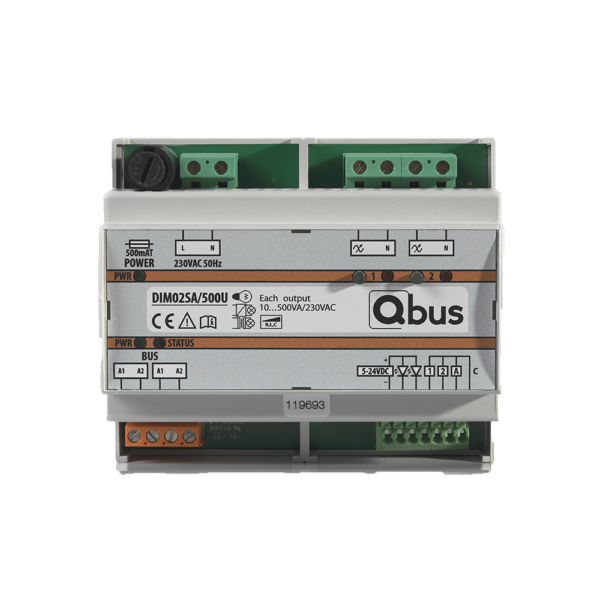
The range of Qbus dimmermodules goes from standard dimmers to dim halogene or incandescent lights over universal dimmers for any load to 0/1-10V dimmers to dim analogue circuits or energy savings lamps
2 OUTPUTS 10-500VA, 3 INPUTS UNIVERSAL RELAY MODULE
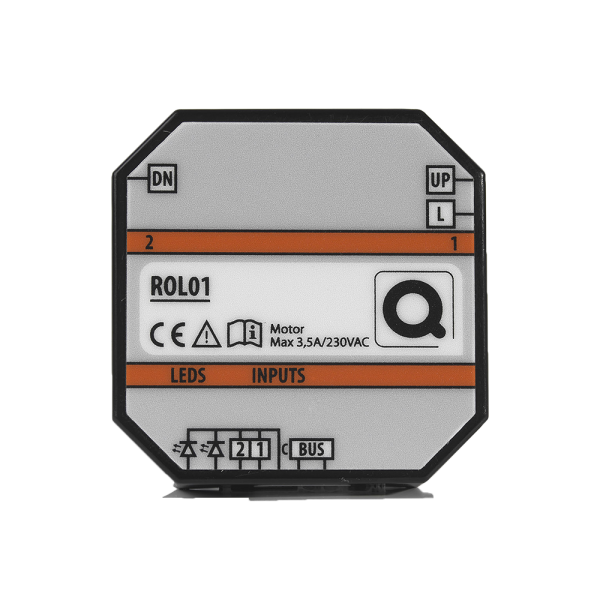
In a Qbus system, motor control (for shutters, screens,…) can be done centrally (from the electrical distribution board) or decentrally (with a module on the bus closeby the motor).
2 OUTPUTS 8AMP. 2 IINPUTS SHUTTER MODULE
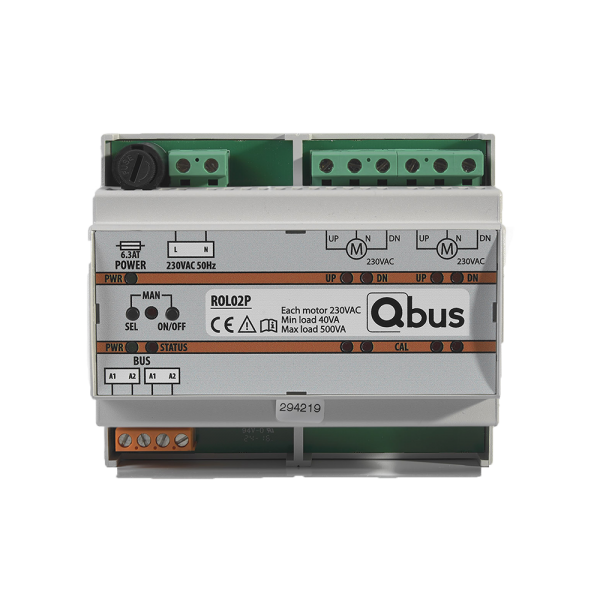
In a Qbus system, motor control (for shutters, screens,…) can be done centrally (from the electrical distribution board) or decentrally (with a module on the bus closeby the motor).
2 UP/DOWN OUTPUTS 230V SHUTTER MODULE WITH POSITIONING
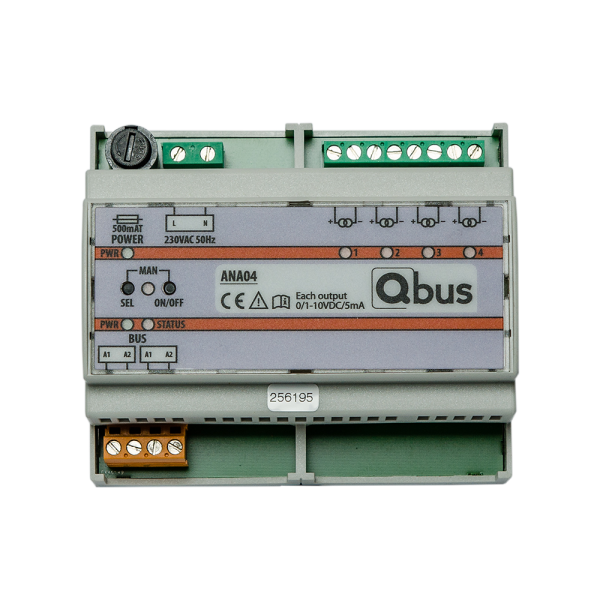
The range of Qbus dimmermodules goes from standard dimmers to dim halogene or incandescent lights over universal dimmers for any load to 0/1-10V dimmers to dim analogue circuits or energy savings lamps.
4 OUTPUTS 0/1-10V ANALOG DIMMER MODULE
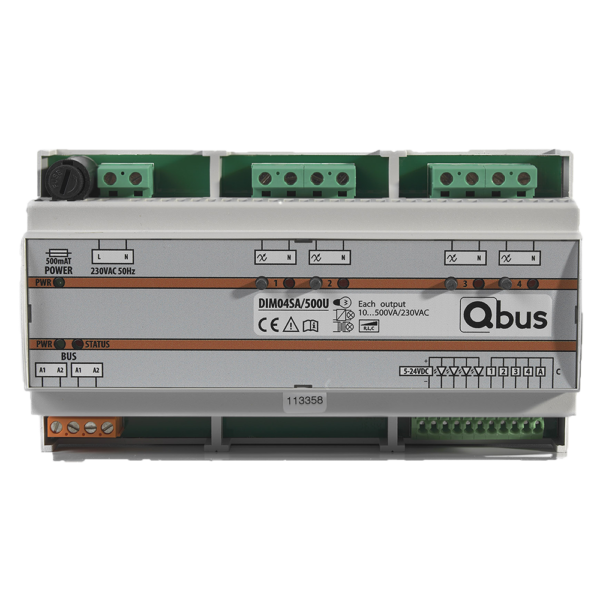
The range of Qbus dimmermodules goes from standard dimmers to dim halogene or incandescent lights over universal dimmers for any load to 0/1-10V dimmers to dim analogue circuits or energy savings lamps.
4 OUTPUTS 10-500VA, 5 INPUTS UNIVERSAL RELAY MODULE
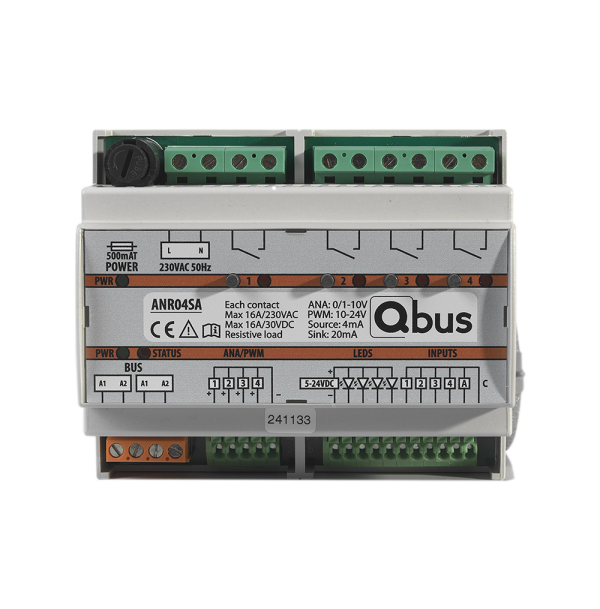
The range of Qbus dimmermodules goes from standard dimmers to dim halogene or incandescent lights over universal dimmers for any load to 0/1-10V dimmers to dim analogue circuits or energy savings lamps.
5 INPUTS, 4 ANALOG DIMMERS AND 4RELAYS 16AMP./230V CONTROL MUDULE
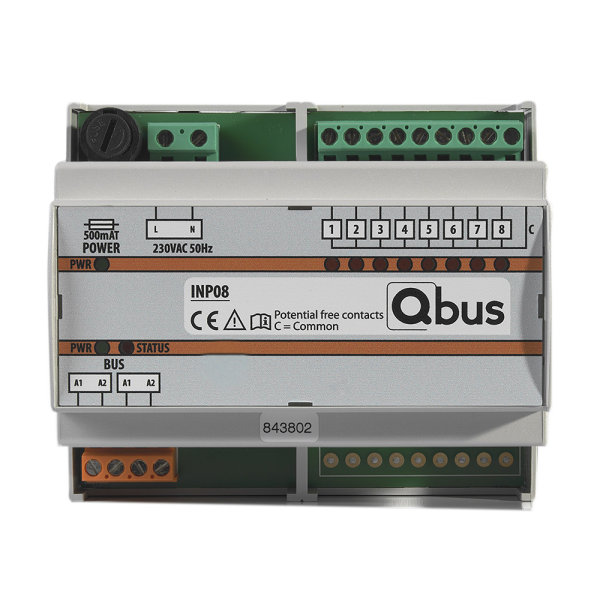
Input Modules exist in both DIN rail format to be mounted in the enclosure, as well as in a smaller format to be included in the in-wall mounting box of a switch. Via input modules, external contacts such as standard switches, window and door contacts, all kinds of detectors, garage doors and the like are connected to the Qbus system
8 INPUTS POTENTIAL FREE MODULE
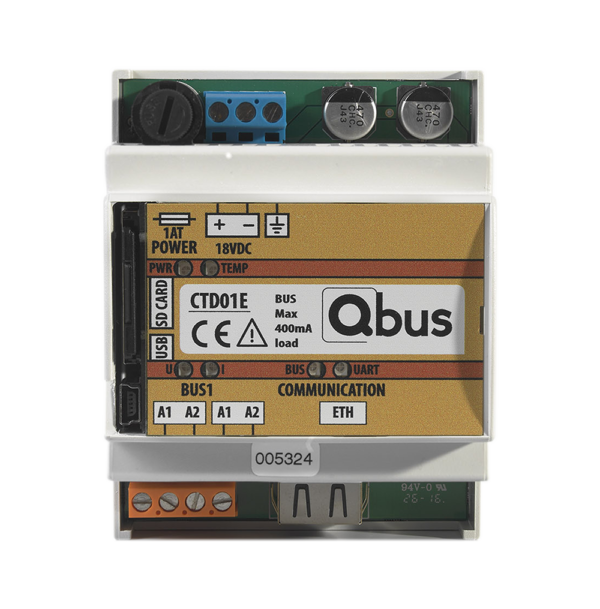
The CTD Controller (Patent Pending) is the heart of your QBus system. The Controller controls and supplies power to all Qbus modules connected via the usual two-wire bus: flexible and easy to install. Each controller has an on-board SD memory card on which all actions that happen on the bus are stored. That data can be used by the Qbus EQOmmand software to visualize, predict and optimize energy consumption. Each CTD has a standard USB port to adapt your system to your liking in an easy way. Optionally, each controller can have an Ethernet port via which you can securely communicate with your controller over the internet.
BASIC CONTROLLER
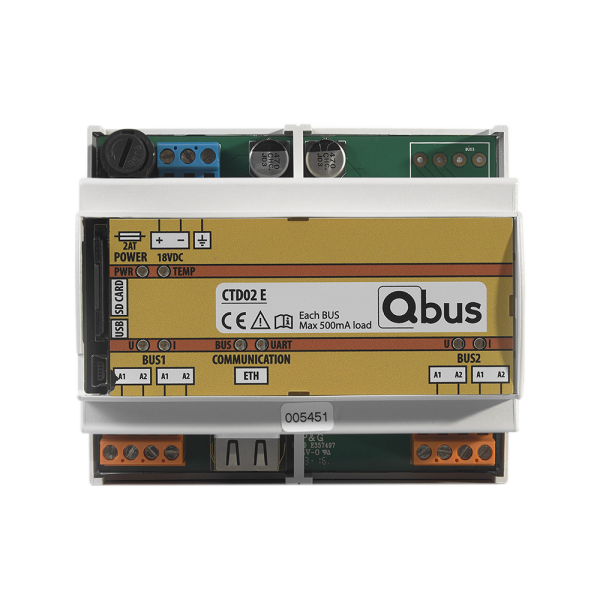
CONTROLLER “FULL” WITH USB ETHERNET
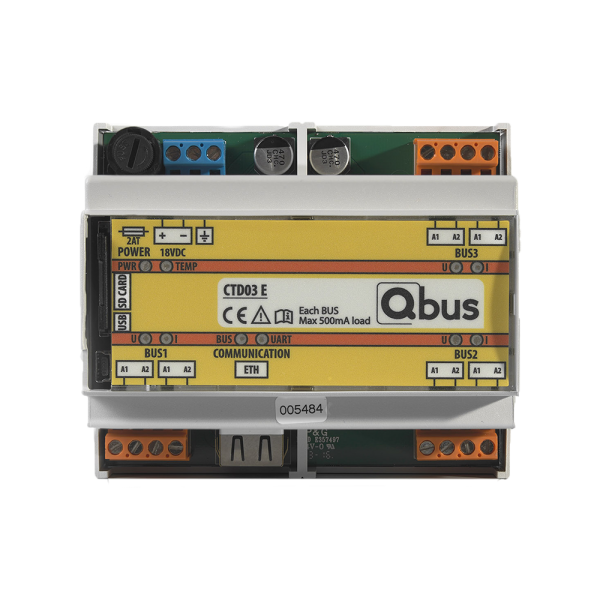
The CTD Controller (Patent Pending) is the heart of your QBus system. The Controller controls and supplies power to all Qbus modules connected via the usual two-wire bus: flexible and easy to install. Each controller has an on-board SD memory card on which all actions that happen on the bus are stored. That data can be used by the Qbus EQOmmand software to visualize, predict and optimize energy consumption. Each CTD has a standard USB port to adapt your system to your liking in an easy way. Optionally, each controller can have an Ethernet port via which you can securely communicate with your controller over the internet.
CONTROLLER “MAXI” WITH USB ETHERNET
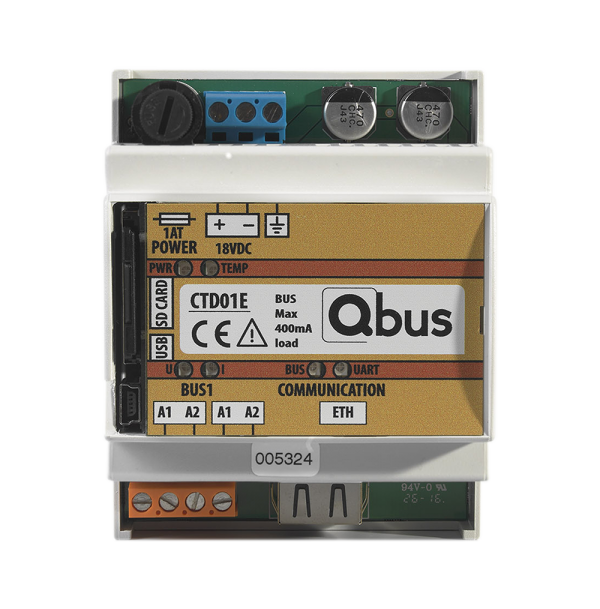
The CTD Controller (Patent Pending) is the heart of your QBus system. The Controller controls and supplies power to all Qbus modules connected via the usual two-wire bus: flexible and easy to install. Each controller has an on-board SD memory card on which all actions that happen on the bus are stored. That data can be used by the Qbus EQOmmand software to visualize, predict and optimize energy consumption. Each CTD has a standard USB port to adapt your system to your liking in an easy way. Optionally, each controller can have an Ethernet port via which you can securely communicate with your controller over the internet.
CONTROLLER USB & ETHERNET
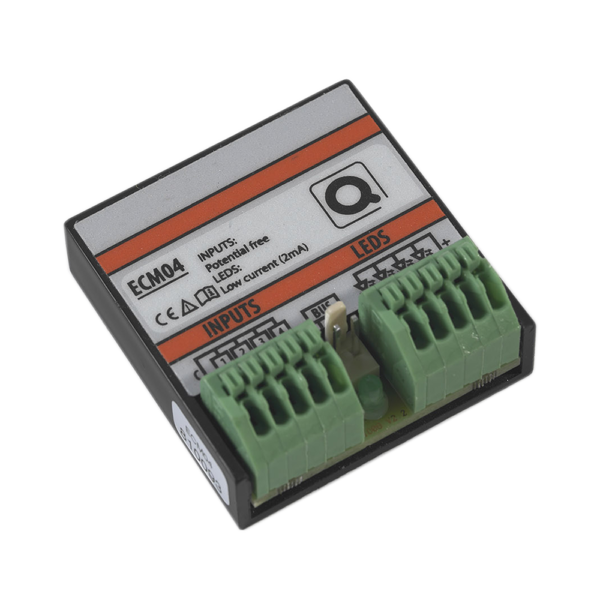
Module which counts and processes pulses received from a pulse meter. Any pulse meter can be connected to the ECM04 as long as the contacts are potential-free. The ECM04 can receive a pulse every 250ms. Alarms can be triggered based on a set number of pulses, for example to receive green energy certificates every kW generated by solar panels.
ENERGY COUNTER MODULE
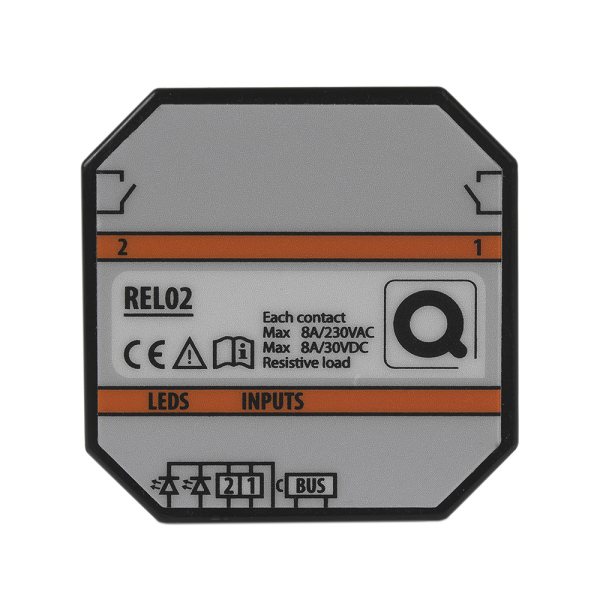
Via the relay modules, outputs can be switched. A relay module has no specific function but can handle any switch functions: monostable (eg a doorbell), bistable (on / off), timer, interval, thermostat output. Some relays can also control motors of blinds, curtains, gates.
RELAY MODULE (2X 16A)
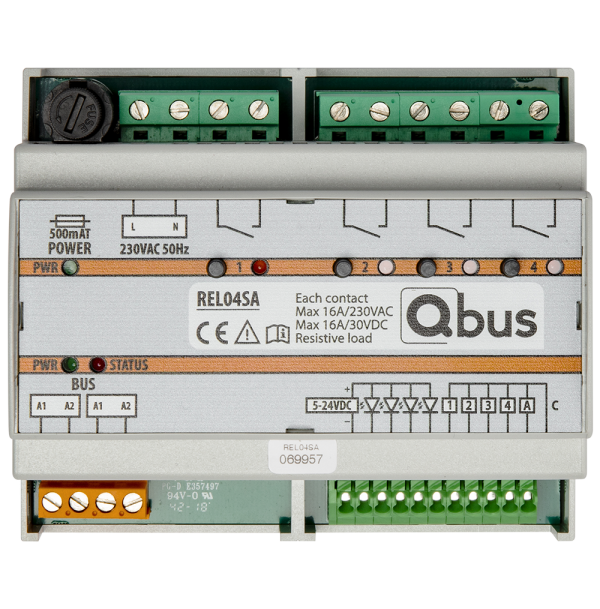
Via the relay modules, outputs can be switched. A relay module has no specific function but can handle any switch functions: monostable (eg a doorbell), bistable (on / off), timer, interval, thermostat output. Some relays can also control motors of blinds, curtains, gates.















